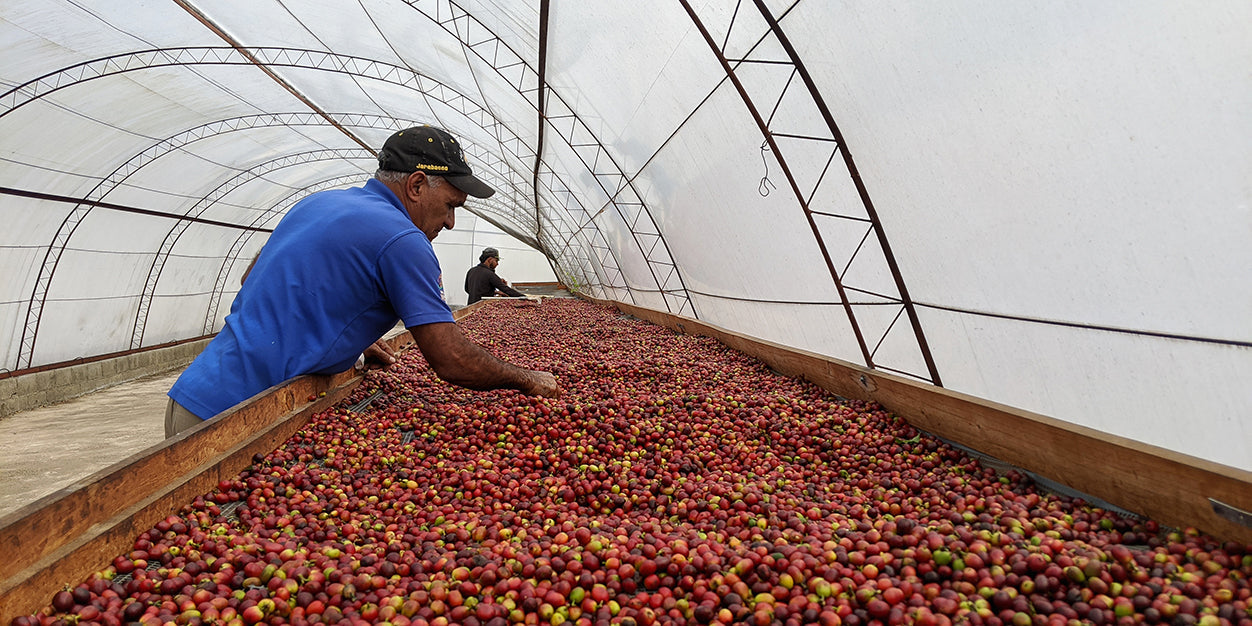Organic Dominican Republic
- In stock, ready to ship
- Backordered, shipping soon
A delicious and mellow cup of true island organic coffee with sweet well-roundedness and a strong finish. This Organic Dominican coffee has very low acidity, making it easy to distinguish the sweet apple, grape and vanilla flavors throughout the cup. This USDA organic, Direct Trade coffee offering is a stunning example a of single estate tropical coffee.
The family who owns and operates this single estate farm in Cibao has made amazing contributions the the community by donating books and computers to local schools and helping Haitian immigrants obtain legal residence so they can be paid fairly. The operation is run by natural gas which is produced by fermenting the discarded coffee cherries.
This single-serve coffee is compatible with many popular K-Cup® brewing systems. "Keurig" and "K-Cup" are registered trademarks of Keurig Green Mountain, Inc. Fresh Roasted Coffee LLC is not an affiliate nor licensee of Keurig Green Mountain, Inc

















